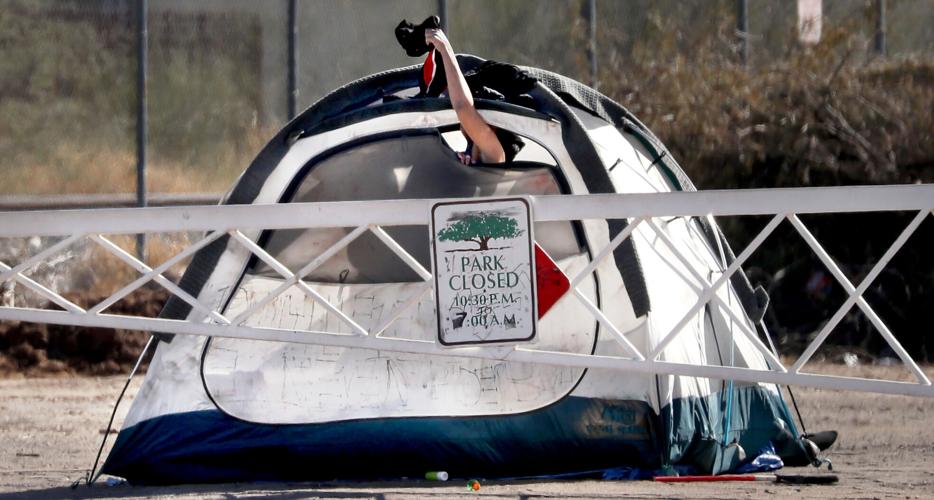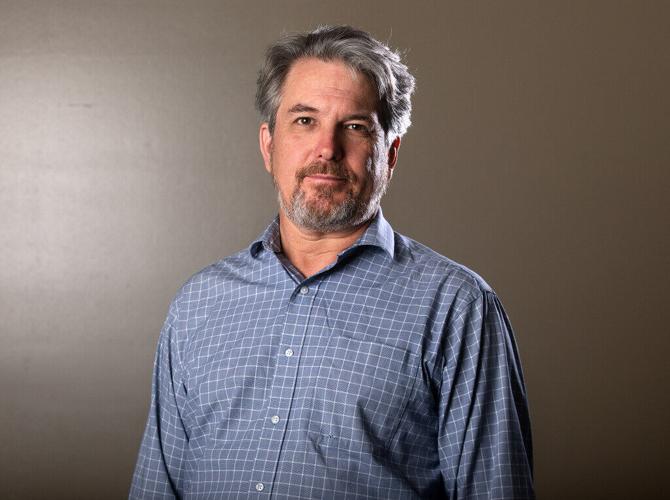After the U.S. Supreme Court ruled June 28 that cities can criminalize sleeping on the streets and in the parks, some Tucson-area officials decried the ruling.
In a press conference about the case, Pima County Attorney Laura Conover said: “The decision in Grants Pass is wrong from a moral, ethical and humane standpoint. As a community, we will not dehumanize people.”
Pima County Board of Supervisors Chair Adelita Grijalva added, “We cannot arrest our way out of a problem facing our community members and many other communities around the country. Being unhoused is not a crime.”
Tucson City Attorney Mike Rankin was more lawyerly, writing after the ruling: “Tucson has established a multifaceted approach to address unsheltered homelessness that respects the dignity and personal property of homeless individuals, while prohibiting unlawful occupancy of public property.”
The responses were admirable in their focus on vulnerable people living outside, but the Supreme Court ruling doesn’t really say we can arrest our way out of drug addiction, serious mental illness and housing unaffordability. Nor does it require us to try.
And there are other people with interests in this discussion — not just those who sleep in public places.
There are, for example, Tucson residents who would like to be able to use Santa Rita Park, or Anza Park or Estevan Park freely, without being around drug use and sales, or feeling legitimately unsafe. These people’s interests matter, too, and can be defended better as a result of the ruling.
What the Supreme Court said in the Grants Pass ruling is that the Oregon town’s law making it illegal to sleep on public property, even when there is no alternative shelter available, is constitutional. Before the ruling, case law from the 9th U.S. Circuit Court of Appeals said that cities can’t cite or arrest people for sleeping on public property if there is no other shelter available.
Now, cities can arrest people for sleeping in parks, among other public places, even if there is no shelter available.
But that doesn’t mean we have to.
The Supreme Court didn’t require that cities like Tucson and counties like Pima become cruel and Draconian, filling the jail with people for the crime of sleeping outside.
We simply have more options now for protecting the interests of people who are not unhoused but still deserve normal use of our public space.
Even Brian Flagg, the longtime advocate for homeless and poor people in Tucson, said he opposes the way his neighborhood park, Santa Rita, has become a campground.
“Parks, especially that park, are for the use of families and my neighborhood. It shouldn’t be a campground. I think if people are going to camp somewhere they should going in front of city hall or the federal building or the state building.”
While Rankin, the city attorney, expects no significant changes to city policies and practices, he acknowledged it’s clear now that the city is acting within the Constitution when it moves people camping overnight in a park, for example.
“It removes any questions about whether we can enforce that kind of ordinance constitutionally,” he said. “You can’t be in the park when the park’s closed.”
How often the city will enforce that, though, is up to debate, even in the aftermath of the Grants Pass ruling. It will take persistent effort to have an impact anywhere.
This new power is being asserted by some officials in California, which has a bigger problem with people camping on public property than Tucson does. On July 25, Gov. Gavin Newsom ordered California agencies to begin removing illegal and unsafe camps from state property, after giving warning and offering help and services to the residents.
Newsom also encouraged local governments in California’s cities, where camps are numerous, to follow suit, even threatening them with taking away money if they don't remove camps. Los Angeles County officials rejected Newsom’s advice, but San Francisco Mayor London Breed, who is in a re-election race, responded enthusiastically.
Breed, who has long talked of responding with “tough love” to those camping on public property, said city officials can now make take-it-or-leave-it offers to those illegally camping on sidewalks and other public property: Take offers of shelter, housing or a bus ticket out of town, or face criminal sanctions.
Tucson isn’t facing as extreme circumstances as San Francisco, where housing prices are much higher to go along with the pervasive drug-addiction and mental-health problems the country suffers from. But we too can still use the tool they’re using — judiciously.
Through persistent effort, we can pick a park or some other place and make it usable again for neighborhood residents. Of course, when moving people out, we will offer them services and, hopefully, a place to stay. Since Jan. 2, 68 people have been moved from camps into housing units, said Mari Vasquez, the city and county’s homeless-response coordinator, at Wednesday’s Tucson City Council meeting.
But often people in camps turn down assistance, Vasquez said.
“We are seeing a high increase in the number of people using fentanyl out in the encampments, which is unfortunately showing a decrease in those using services.”
That doesn’t mean we have to allow them to occupy a park. Even if we’re just moving the problem around, making one or two public spaces available again is a worthy goal that is made easier by the Grants Pass ruling.





